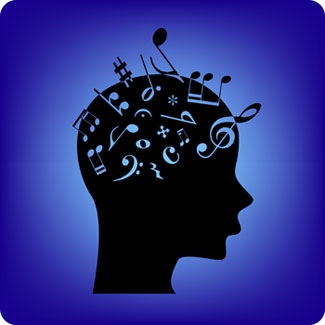Music training in childhood “fundamentally alters the nervous system such that neural changes persist in adulthood after auditory training has ceased.”
Skoe, E. & N. Kraus. (2012). A little goes a long way: How the Adult Brain Is Shaped by Musical Training in Childhood. The Journal of Neuroscience, 32(34):11507–11510.
Scientific American’s (2010) board of editors asserted, “Studies have shown that assiduous instrument training from an early age can help the brain to process sounds better, making it easier to stay focused when absorbing other subjects, from literature to tensor calculus.”
Hearing the music, honing the mind. (2010). Scientific American, 303(5), 16.
The cognitive structures developed through music instruction “exposed and illuminated more general organizing structures relevant for multiple disciplines.”
Portowitz,P., Lichtenstein, O., Egorova, L., & Brand, E. (2009). Underlying mechanisms linking music education and cognitive modifiability. Research Studies in Music Education, 31, 107–29.
On the 2012 SAT, students who participated in music scored an average of 31 points above average in reading, 23 points above average in math, and 31 points above average in writing.
College Board SAT, 2012 College-Bound Seniors: Total Group Profile Report. (See table 18.)
Researchers have demonstrated a strong relationship between individuals who participated in school arts experiences and higher academic success as demonstrated by grade point averages, scores on the Florida Comprehensive Assessment Test (FCAT) and math and verbal portions of the SAT exam.
Kelly, S. N. (2012). Fine Arts-Related Instruction’s Influence on Academic Success.
Students in high-quality school music programs score higher on standardized tests compared to students in schools with deficient music education programs, regardless of the socioeconomic level of the school or school district.
Johnson, C. M. & Memmott, J. E. (2007). Examination of relationships between participation in school music programs of differing quality and standardized test results. Journal of Research in Music Education, 54(4), 293-307.
After assigning 144 children to keyboard lessons, voice lessons, drama lessons, or no lessons, researchers found that children in the music groups exhibited greater increases on an IQ test than students in the drama lessons or those without lessons.
Schellenberg, E. G. (2004). Music lessons enhance IQ. Psychological Science, 15(8), 511-514.
An analysis of data from the National Educational Longitudinal Study of 1988 demonstrated a significant correlation between participation in school music groups and achievement in math and English.
Broh, B. A. (2002). Linking extracurricular programming to academic achievement: Who benefits and why? Sociology of Education, 75(1), 69-95.
First- graders who participated in special music classes as part of an arts study saw their reading skills and math proficiency increase dramatically.
Gardiner, M. F., Fox, A., Knowles, F., & Jeffrey, D. (1996). Learning improved by arts training. Nature, 381(6580), 284-284.
Schools that have music programs have significantly higher attendance rates than do those without programs (93.3 percent as compared to 84.9 percent).
Harris Interactive Inc. (2006). Understanding the Linkages Between Music Education and Educational Outcomes.
With music in schools, students connect to each other better-greater camaraderie, few fights, less racism and reduced use of hurtful sarcasm. Jensen, E., Arts with the Brain in Mind, Association for Supervision and Currciculum Development, (2001).
